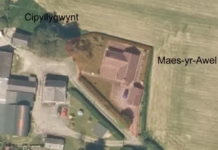Officers in Llanelli executed a number of warrants last week at properties in Llanelli, Llwynhendy and Burry Port.
Detective Sergeant Andrew Davies said, “We have been working with a range of support agencies to take a preventative approach to criminality that is often associated with drugs. Detectives acted on information we had in relation to people that we believed to be the possession of illegal drugs, to remove the substances from our communities.”
Officers executed seven warrants. Six people were arrested on suspicion of possession of controlled drugs, one person for possession with intent to supply and one person for domestic related assault.
The teams included detectives, local neighbourhood officers, armed response teams, special constables, officers with Integrated Offender Management and officers with police dogs.
To support the warrants and to reassure communities there were extra police patrols and visible presence in the areas where the warrants were executed. Roads policing teams also be patrolled communities to tackle other criminality.
DS Davies continued “There were three areas to this activity. They are, enforcement, where we acted on intelligence to remove drugs from communities. Community safety, where neighbourhood teams patrolled the area to reassure residents that police are taking positive action, and finally crime prevention, where we work with Drug Intervention Prevention programme officers and the Integrated Offender Management team, to provide support and help to people who want to break the cycle of offending.
“In total we executed seven warrants. The difference this time, compared to previous activity, is that we have put the emphasis more on prevention and working with the IOM team and Drug Intervention Programme officers to provide support and advice to potential offenders and their families and friends.
“Operations of this nature, that involve a number of agencies and a target a number of leads at once, take place three or four times a year. However, it is worth noting that officers act on intelligence received that related to drugs on a regular basis.”
Detective Constable Vicky Oliver, who works with the IOM team said, “IOM is about working with agencies to reduce offending and reduce crime. We identify people in our communities who have a history of offending and work with them to make changes to their lives and stop offending. This could be help with accommodation, drug and alcohol rehabilitation, debt management or help with training and employment.
Part of the work when we execute these warrants to is, in conjunction with other agencies, to offer people we know could benefit from IOM, the opportunity to take part. We will put an agreement in place and provide suitable support. If they beach the agreement then they will be dealt with appropriately by the Police.”
Sergeant Justin Evans added, “We know that residents want us to take action to remove drugs from our communities. We can do it by working together, with agencies, and people in the communities themselves. After each warrant we had local neighbourhood teams patrolling and speaking to residents to explain what had taken place and why there was so much police activity in the area. We want people to feel safe, as well as actually be safe.”
Integrated Offender Management is an overarching framework, which helps local delivery partners to jointly develop strategies and interventions to reduce crime, reoffending and tackle the social exclusion of offenders and their families
The project has been running for six months in Carmarthenshire and has 131 members. These are people who have been identified for IOM due to their history of offending, number of crimes committed and their backgrounds.
Referrals are submitted and ‘scored’ against the priorities for the county. The priorities are the areas where we are seeking to reduce the number of crimes and patterns of offending. The referrals are then discussed by a Multi-Agency Selection Panel to see if the individual is suitable for the scheme.
The members are offered support to help them change their lives and stop their offending. There are seven pathways where help is offered. They are: accommodation; attitude, thinking and behaviour; children and families; drug and alcohol; education, training and employment; finance, benefit and debt and health.
When they join IOM, they must agree to stop offending and to engage with the help and support that is being offered to them. If they breach this agreement, they will be recalled, if on a license, or dealt with appropriately.
There are a number of success stories in Carmarthenshire where people who have previously offended have been supported by the agencies and have transformed their lives. There are also cases where people haven’t engaged with the support and have offended, and the police have taken appropriate action.

| [donate]
| Help keep news FREE for our readersSupporting your local community newspaper/online news outlet is crucial now more than ever. If you believe in independent journalism,then consider making a valuable contribution by making a one-time or monthly donation. We operate in rural areas where providing unbiased news can be challenging. |





















